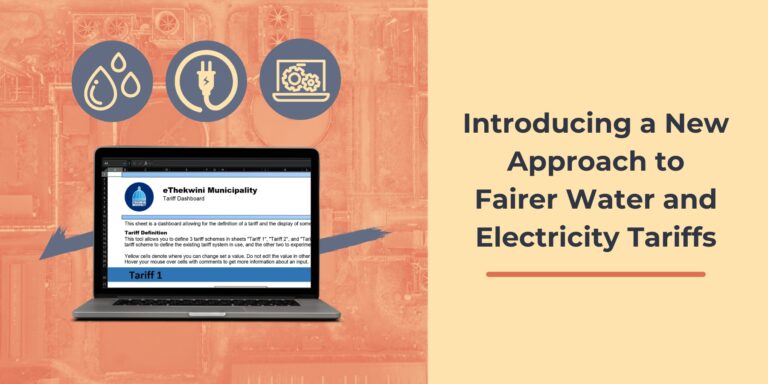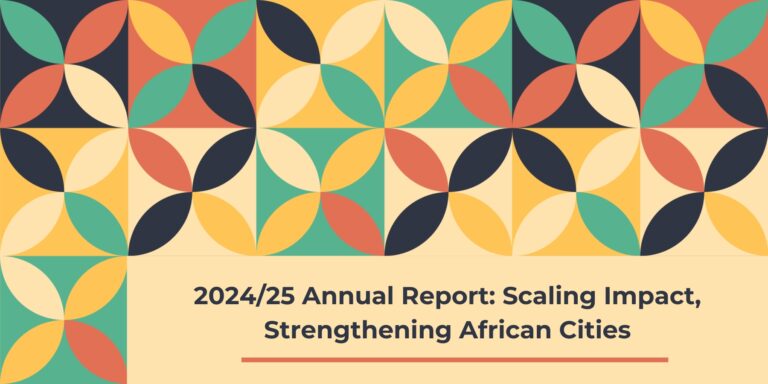
“Failure to reverse the trend of deepening poverty could trigger a downward spiral of economic decline and social conflict.” These words were written in 2004 by the BIG Finance Reference Group , which was tasked to advise the South African Government on how to progressively achieve its Constitutional obligation to provide appropriate social assistance to everyone “if they are unable to support themselves and their dependents”.
South Africa, with a Gini coefficient score of 63 in 2014, is the most unequal country in the world and has made negligible progress in reducing inequalities. Statistics South Africa (StatsSA), in 2015 estimated that more than half of South Africans (55%) live in the upper bound poverty level, and that 25% live below the food poverty line. StatsSA, in 2021, adjusted the poverty lines: the food poverty line is R624 per person per month (pppm), the lower-bound poverty line is now R890 pppm, and the upper-bound poverty line is now R1,335 pppm.
These already high poverty levels were exacerbated by the estimated more than 2 million job losses between February and April 2020 that were the result of the Covid-19 lockdown measures. The July 2021 looting and destruction of infrastructure in KwaZulu-Natal and Gauteng has resulted in 105,000 lost jobs. Nearly twenty years after the BIG Reference Group warned that deepening poverty would lead to economic decline and social conflict, that is the point at which South Africans find themselves. The unrelenting high levels of poverty, the socio-economic impacts of the COVID19 lockdown levels and further jobs lost in the July 2021 unrest make the implementation of broader social assistance measures even more urgent.
South African Grants.
In 2019 18 million South Africans accessed these Social Grants:
- Child Support Grant
- Older Person’s Grant
- Disability Grant
- Grant-in-Aid
- Care Dependency Grant
- War Veteran’s Grant
- Foster Child Grant
- Social relief of distress
Excluded from these social assistance grants have been able-bodied 18 to 59 year olds who live in poverty. Responding to the COVID-19 crisis the government’s Social Relief of Distress package was extended to the unemployed as a 6 month grant of R350 per month. There have been calls for the reform of the social grant system including the implementation of permanent social assistance for those aged 18 to 59.
Politics and a Basic Income Grant.
Speaking in January 2021 at the ANCs 109th anniversary celebrations President Cyril Ramaphosa said that “This year the ANC government, and broader society, will need to continue discussions on the desirability and the viability of a basic income grant to provide a social safety net to poor people in our country”.
On the 12th March 2021 a recorded Mini-Plenary session of the National Assembly debated “Why South Africa can no longer afford to delay implementing a permanent basic income grant to address basic needs and dignity of its most marginalised citizens’’, which was a topic proposed by the Good Party. In this Mini-Plenary the Social Development minister Lindiwe Zulu said that despite the difficult financial issues facing South Africa, the introduction of some form of universal income is long overdue.
“This is not the time for us to play politics around this issue, because this is an issue that should enable us to respond to the needs of the people of South Africa.” “This is the time for me, my department and my entities to get the necessary support from the wider government, and appreciate this opportune moment to move beyond discussion and policy proposals.”
The figure below shows that there was broad support in principle for BIG from most of the political parties that participated in the Mini-Plenary. This would mean that about 90% of the National Assembly would favour BIG. There were differences in opinion regarding the capacity and credibility of the Government to deliver BIG. Also debated were the mechanism of delivery and the capacity of the fiscus and tax base to fund BIG. On the 25th May 2021 Social Development minister Lindiwe Zulu presented her departmental budget and said that her department is developing plans to urgently introduce a new basic income grant in South Africa. She said that the Department of Social Development has
On the 25th May 2021 Social Development minister Lindiwe Zulu presented her departmental budget and said that her department is developing plans to urgently introduce a new basic income grant in South Africa. She said that the Department of Social Development has
developed, for the unemployed 19 to 59 year olds, a Basic Income Grant (BIG) financing mechanism discussion document. Broad consultations, inclusive of the National Economic Development and Labour Council (Nedlac), are underway.
On the 18th August 2021 the Department of Social Development (DSD) published a Green Paper titled “Green Paper on Comprehensive Social Security and Retirement Reform (2021)”, which discusses BIG in section 4.14 The Basic Income Grant (BIG). DSD proposed a universal BIG for the 18 to 59 age group with the existing child support, elderly and persons with disabilities grants remaining. The proposed BIG grant amount is at the Food Poverty Line (FPL) of R624 per person per month (pppm), which would cost about R200 billion per year and would be funded by an income tax increase of 10%.
This Green Paper called for comments by 10th December 2021 but was withdrawn on the 31st August. No reason was provided for the withdrawal but it was reported that the Green Paper had not first been presented to Cabinet; Nedlac maintained that the business sectors inputs had mostly been ignored; that it proposed a National Social Security Fund (NSSF) providing retirement, disability benefits and unemployment benefits and that income tax could increase by 12% to fund this.
Can South Africa afford not to spend on social programs such as BIG as a means of getting out of the current economic and social crisis? Cosatu has expressed the view that “This moment calls for a change of mindset and an acknowledgement of the fact that the current unemployment and poverty levels are not sustainable.”

For
- In South Africa there is a moral and constitutional case for providing support to the poor.
- BIG will reduce poverty, increase the spending power of the poor and have a positive economic impact.
- The social grant system in South Africa would be more effective if BIG is introduced.
- BIG should be inclusive of the currently excluded able-bodied unemployed 18 to 59 year olds.
- BIG direct transfers to recipients will reduce the risk of exploitation by agencies to distribute social support.
- A universal Basic Income Grant will improve the administration of social grants as a means test will not be required.
- Universal social protections can mitigate structural inequalities and vulnerabilities in poorer communities.
- BIG can break poverty cycles, increase the ability to find work and reduce adverse coping strategies
- BIG can reduce school drop-out rates where household financial burden has forced children into informal employment and are subjected to child-marriage.
- BIG can provide destitute rural dwellers with funds that contribute to their ability to sustain their livelihoods.
- BIG can reduce gender inequalities and youth vulnerabilities
- BIG grants reward unpaid labour, can support human capital development and support livelihoods.
- BIG ensures that unemployed South Africans, who cannot find nonexistent jobs, are not denied their constitutional right to social assistance from the state.
Against
- BIG could be a distraction that hinders the necessary structural transformation of the economy, which is essential to fund BIG in the long run.
- It is not rational to focus on BIG government expenditure without addressing administrative inefficiencies that are hindering employment, such as the backlog of 5,000 applications to start a mine.
- South Africa has a weak economic trajectory and cannot afford BIG and National Health Insurance.
- “A basic income grant would only serve to offer some short-term relief to those most in need and will not address the long-term structural issues in the economy that desperately need to be solved
- It is too expensive in South Africa compared to wealthy developed world countries that can afford extensive social security,
- BIG handouts are disincentives to work.
- BIG recipients would be dependent on the benevolence of the state
- BIG would present a huge challenge to the administration.
- BIG talk boils down to voter bribery and won’t happen.
- BIG will worsen South Africa’s massive public debt to GDP ratio.
- South Africa’s tax base is shrinking and can’t fund the country’s current public spending.
- Progressive and wealth taxes could deter foreign investors and could cause capital flight.
How much will BIG cost?
The cost of BIG depends on the level of the grant which could, for example, be pitched at the food poverty Line (R585), lower-bound poverty line (R840) or the upper-bound poverty line (R1 268). The cost per annum of a universally accessible BIG for all 34.1 million adults between 18 and 59 at the food poverty line would be R239 billion, and R343 billion at the lower-bound poverty line and R519 billion at the upper-bound poverty line. (Note that these calculations were based on the poverty lines as in March 2021. In August 2021 Stats South Africa adjusted the poverty lines as follows: food poverty line is R624 per person per month (pppm), the lower-bound poverty line is R890 pppm, and the upper-bound poverty line is R1,335 pppm)
Where will the BIG funds come from?
ANC has proposed paying a R500 monthly grant to those aged 19 to 59 who aren’t normally eligible for other aid. This would cost the state R197.8 billion a year.
Where will the financing for this come from? Various suggestions such as the upward adjustment of value-added tax, income tax, carbon tax, re-allocation of public expenditure or increased corporate tax have been raised.
Additional taxes totalling R158 billion could provide a BIG grant at the food poverty line (R585 pppm) for 18 to 59 year olds, assuming that 60% of 18 to 59 year olds access this grant. A wealth tax, over and above the additional taxes, could add R189 billion to the BIG funds, which would be R347 billion. Additional tax and wealth tax could fund a BIG grant for all 18 to 59 year olds not formally employed at the upper bound poverty line of R1268 pppm. (Note that in August 2021 Stats South Africa adjusted the poverty lines as follows: food poverty line is R624 per person per month (pppm), the lower-bound poverty line is R890 pppm, and the upper-bound poverty line is R1,335 pppm)
What now?
The for and against arguments each raise valid points. This suggests that urgent parallel processes need to be undertaken now to avoid the “downward spiral of economic decline and social conflict”
- Improve the efficiency and integrity of government so that employment is not hindered.
- Eliminate wasteful and irregular government expenditure.
- Introduce a universal basic income grant for 18 to 59 year olds.
- Address the long-term structural issues in the economy so that employment and the tax base can increase.




